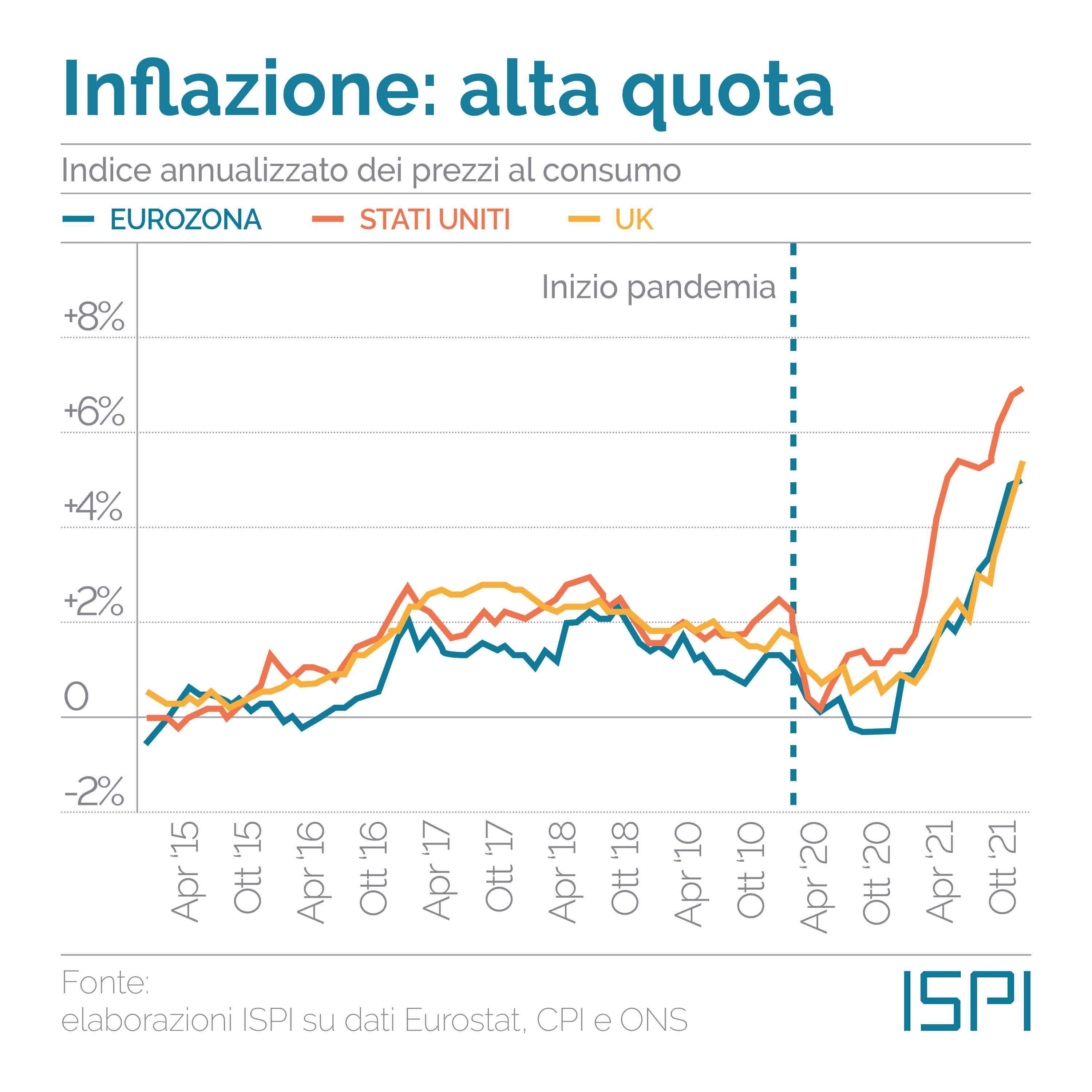On the aspects highlighted above, Tommaso Monacelli, professor of economics at Bocconi University in Milan, and fellow of the IGIER Bocconi and CEPR research institutes in London, takes a different view. While it is true that the situation in Europe and the United States is different, for Monacelli the substance does not change much. In the United States, there is yes, inflation also driven by consumption (not coincidentally, it is higher than in the Old Continent) but, on both sides of the Atlantic, what should be of concern, however, is the rise in prices linked mainly to a supply shock, for what is happening in the commodities market.
In such a scenario, Monacelli says, "central banks do not have to act in a piecemeal fashion, but rather they have to give a decisive response, signaling their future actions." In other words, monetary policy authorities must "announce today what they will do tomorrow and the day after tomorrow, so as to better manage inflation expectations, which are the main driver of inflation. And this is especially true when price increases involve goods that have a big impact in the consumption basket such as gasoline, electricity or heating."
The Bocconi professor was making these remarks back in March, but, unfortunately, months later, it cannot be said that central banks, accused by many observers of moving late, have moved in the direction he advocated in time. "Making monetary policy choices in a phase of economic growth is quite easy," Monacelli continued, "but, in a scenario like the current one, things are much more complicated."
In other words, today's central bankers have to juggle a difficult balancing act in which they are forced to weigh two variables on the scales: to stop the flare-up of inflation, interest rates have to be raised, but at the same time, such a rise ends up having negative effects on the growth of an economy that is already slowing down.
 Tommaso Monacelli, Professore Ordinario di Economia all'Università Bocconi
Tommaso Monacelli, Professore Ordinario di Economia all'Università Bocconi




